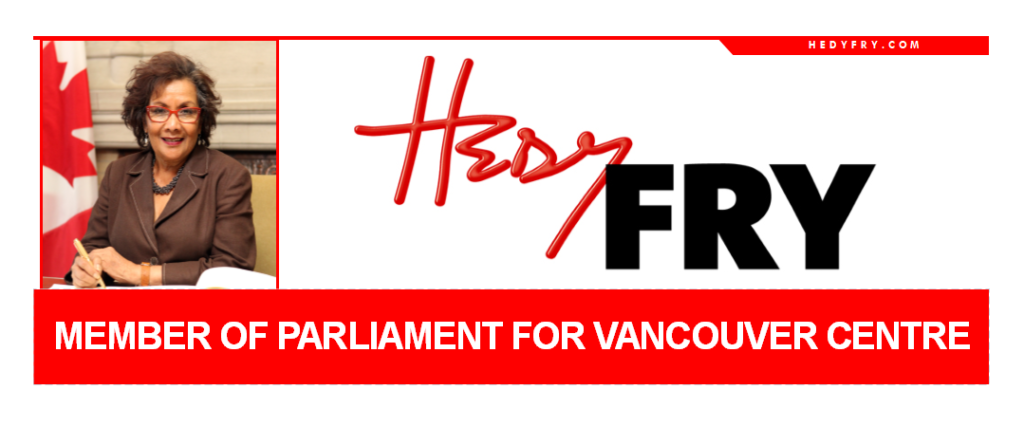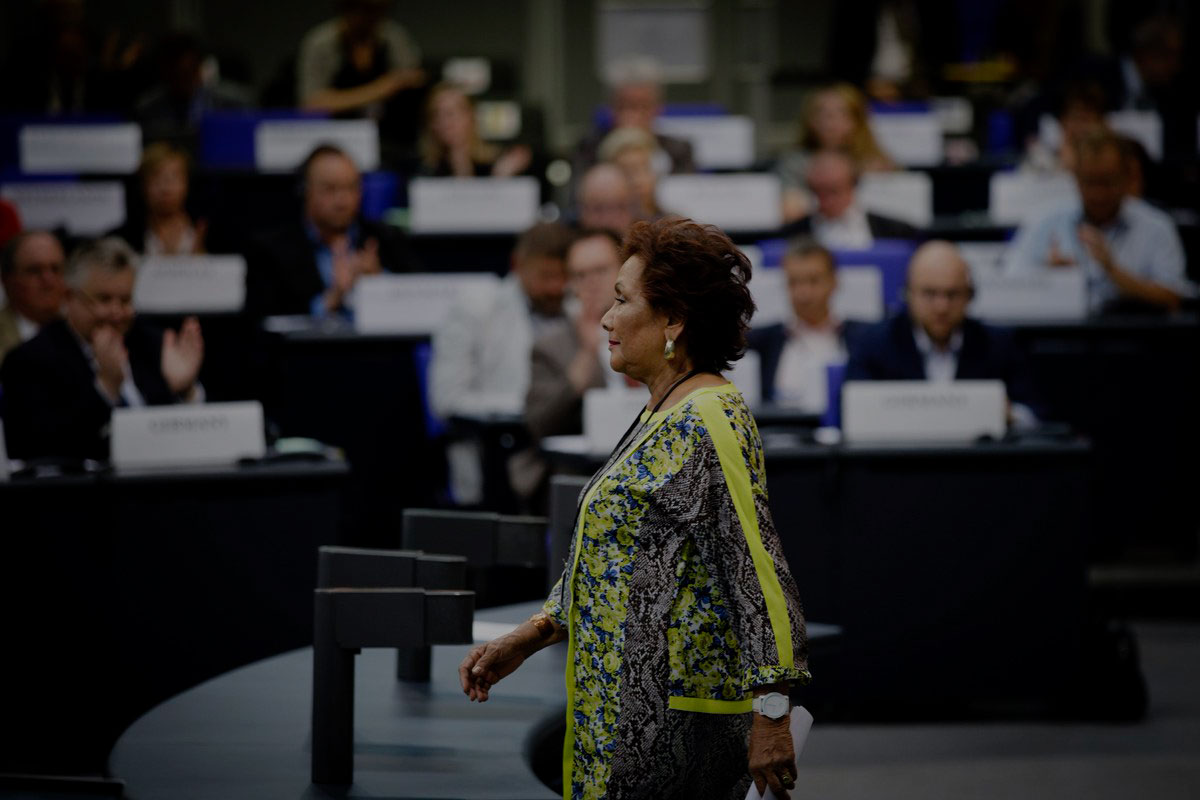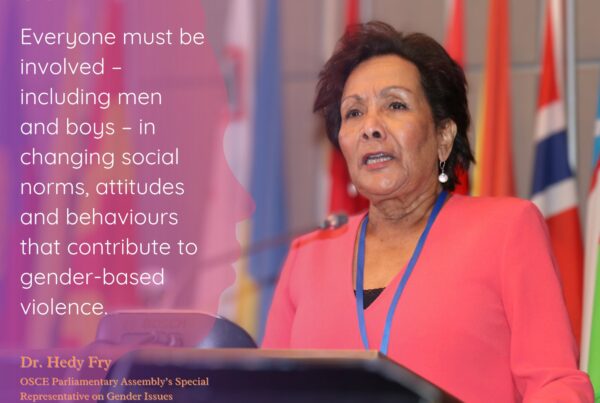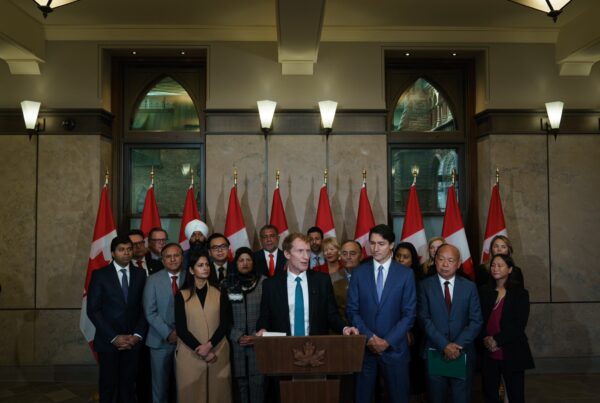
Introduction
Dear colleagues, I’m happy to be speaking with you today as the Special Representative on Gender Issues for the Organization for Security and Co-operation in Europe Parliamentary Assembly. Thank you for providing me with the opportunity to speak in this online meeting of the Standing Committee. I look forward to the day when we can meet again to connect in-person and be able to engage in discussions about gender equality with the entire membership of the PA in a joint session.
This year, at the many virtual events and webinars in which I participated, I highlighted the importance of women’s issues and gender mainstreaming. In my remarks to you today, I will provide updates on the status of gender equality at the OSCE. I will also discuss the topic of my 2021 gender report which will be presented at the Annual Session.
Developments in the Organization for Security and Co-operation in Europe
Since my remarks to you last year, there have been numerous developments related to gender equality within the OSCE and its operations. The OSCE had its Third Gender Equality Review Conference in October 2020. The virtual conference provided a platform to discuss progress on the implementation of the OSCE’s gender equality commitments. I was honoured to speak on a panel on the topic of women’s participation in political and public life.
As well, in July 2020, the OSCE Secretary General presented a Special Progress Report on the Implementation of the 2004 Action Plan for the Promotion of Gender Equality.
This year, we celebrate the entry of many accomplished women into OSCE leadership positions. Helga Maria Schmid is the OSCE’s new Secretary General, and the first woman to hold this post. In addition, Teresa Ribeiro is the new Representative on Freedom of the Media, and Ann Linde, Sweden’s Foreign Minister, is the new OSCE Chairperson-in-Office.
Let us applaud these important achievements as we advance towards gender equality within the OSCE. Of course, there is room for improvement. For instance, while the OSCE has nearly reached gender parity among staff, women remain underrepresented in certain positions, such as heads of missions. Also, the OSCE’s Special Progress Report states that future gender equality work must incorporate the gendered impact of the pandemic.
I would like to welcome Sweden as this year’s OSCE Chair. I was pleased to see that the Swedish Chairmanship intends to place a special emphasis on strengthening gender equality in all aspects of the Organization’s work. I agree with the Swedish Chairmanship that achieving comprehensive security throughout the region requires meaningful inclusion and empowerment of women.
Violence against women journalists and politicians
I will now turn to the subject of my report for this year: violence against women journalists and politicians, which I did not get to address last year because of the focus on the pandemic. Across the OSCE region and beyond, journalists and politicians face increasingly hostile political rhetoric and a surge in online abuse. While both men and women are at risk, women politicians and journalists face additional danger simply on account of their gender. Women journalists and politicians face intense scrutiny on their appearance, intellect, personal relationships, and professional credentials. They are exposed to misogynistic and sexualized online abuse. They are targeted for many reasons: they operate in the public eye; they often bring attention to controversial issues that are of importance to women; and they are working in spaces once reserved for men.
A 2020 survey by the International Center for Journalists and UNESCO found that, among respondents, 73% of female journalists had experienced online abuse and 20% reported being targeted with offline attacks that were connected to the online threats. A 2016 survey of women politicians by the Inter-Parliamentary Union found that among female respondents who held office, 82% had experienced psychological violence, such as targeted sexual and sexist remarks and threats; 22% had experienced sexual violence; and 26% had experienced physical violence.
In addition, many women journalists and politicians face intersecting forms of discrimination based on their multiple identities. Female journalists and politicians who are racialized or from religious, ethnic, sexual or other minorities often experience additional harassment, threats and violence.
In my 28 years as a Member of Parliament in Canada, I have faced gender-based harassment and threats because of my work. I suspect that many women in this room have experienced similar attacks for participating in public life. News stories have highlighted numerous examples recently, including:
- the threats of sexual violence against female opposition activists in Belarus, including Sviatlana Tsikhanouskaya;
- the relentless racist and sexist online campaigns against Diane Abbott, the first black woman elected to the United Kingdom’s Parliament; and
- the harassment perpetrated by fellow politicians and the online abuse against Congresswoman Alexandria Ocasio-Cortez in the United States.
Sadly, these stories are just a snapshot of a massive problem. None of our countries are immune.
The impact of these gendered attacks is to silence women’s voices in public life. Often women will not report the abuse because they do not want to be seen as vulnerable or weak. To protect themselves and those close to them, women may self-censor, close their social media accounts, or choose to leave both professions for their own mental and physical well-being.
This violence also leads to less diversity in representation among the media and legislative bodies. Several studies show that a more diverse newsroom leads to more accurate and fulsome reporting and coverage of issues that would otherwise be dismissed, including issues of importance to women. As well, diversity in our parliaments and other elected bodies helps ensure that legislation and government priorities better reflect the needs of the population.
Way Forward
As parliamentarians, it is critical that we bring attention to this problem. We can no longer support the culture of silence, stigma and impunity that is associated with gender-based violence. We must:
- speak publicly in support of colleagues who are being targeted;
- champion policies and laws that encourage women to report instances of sexual harassment and assault, and provide effective remedies;
- update our laws to recognize and address the harms caused by online abuse; and
- demand that law enforcement improves their response to threats and violence against women politicians and journalists.
In particular, I call on men to be our allies, and to offer support and assistance when you see that women are threatened or abused, whether in person or online.
As part of the OSCE Representative on Freedom of the Media’s campaign for the Safety of Female Journalists, a new Resource Guide was launched that provides suggestions for State and non-State actors to protect the safety of female journalists online. As well, the OSCE Office for Democratic Institutions and Human Rights has been working to promote women’s equal political participation.[8] I urge all parliamentarians to continue to support the OSCE in this important work.
Conclusion
In conclusion, gender-based violence should not be the cost for women seeking to work in the public sphere. Consider the women who will never become journalists or politicians, or who will leave these fields prematurely, because of threats and violence. In these situations, important stories are never told, and significant pieces of legislation are never written or debated.
To the women in the world of journalism and politics, I celebrate your strength and resilience. In my annual report, I will be examining violence against women journalists and politicians in greater detail. I look forward to presenting the report to you at the upcoming Annual Session. As always, I welcome feedback from you in the interim.
Thank you for your attention.
Referenced Material
- International Center for Journalists and United Nations Educational, Scientific and Cultural Organization, Online violence Against Women Journalists: A Global Snapshot of Incidence and Impacts, 2020.
- IPU, Sexism, harassment and violence against women parliamentarians, October 2016.
- Amnesty International UK, “Belarus: Authorities threatening women political activists ahead of election,” Press releases, 17 July 2020.
- Abby Ohlheiser, “How much more abuse do female politicians face? A lot.,” MIT Technology Review, 6 October 2020; John Wagner and Felicia Sonmez, “Rep. Yoho apologizes for Capitol Hill confrontation with Rep. Ocasio-Cortez,” The Washington Post, 22 July 2020.
- Amnesty International, Toxic Twitter – A Toxic Place for Women, 2018.
- Anna Griffin, “Where Are the Women?,” Nieman Reports, 11 September 2014.
- OSCE, Safety of Female Journalists Online; and OSCE, Promoting women’s political participation and gender equality.






